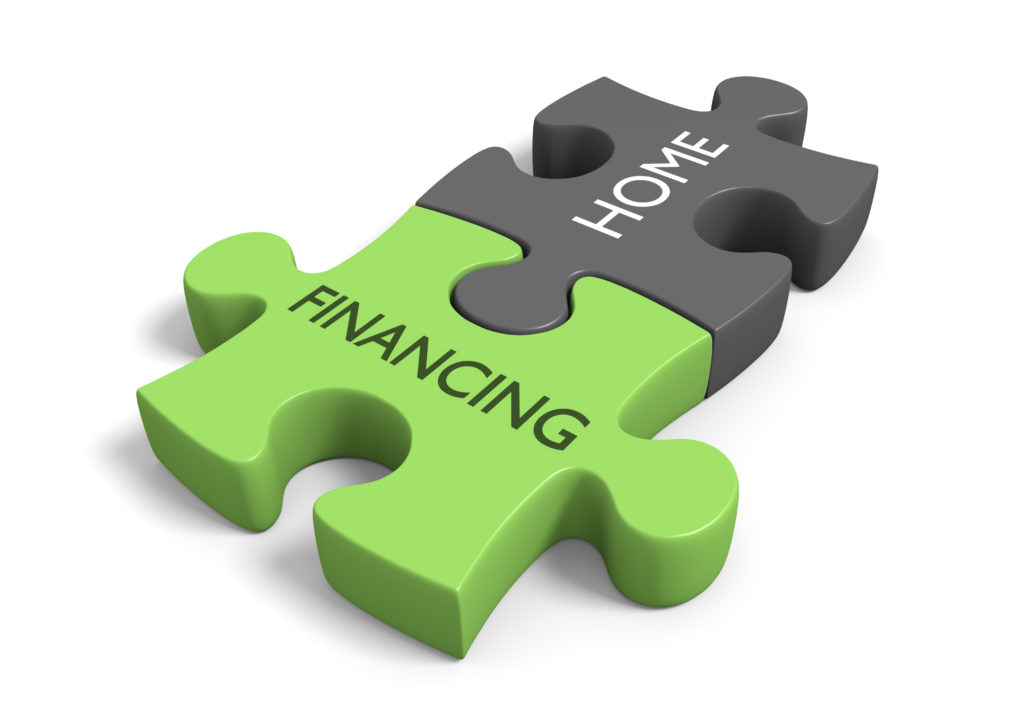
In this article
How Does Delayed Financing Work For Cash Buyers?
The country is currently experiencing one of its all-time most competitive housing markets, with the number of real estate listings decreasing by over 40% in 1 year.
With the supply of properties that are currently on sale being so low, homebuyers are discovering that competing with other buyers is very difficult. Astronomical offers are being made over the asking prices and houses are being snatched up before there is even the chance to go to an open house. With the market being this competitive, you might need to search for other methods for getting your offer accepted other than just asking above or at the asking price. Making a cash offer is one option.
Not everyone is going to be willing to use up all of their savings and become cash poor and house rich. Delayed financing is a strategy that some cash buyers are using instead.

What Is Delayed Financing?
With delayed financing, you can buy a house using an upfront cash payment. You can start a cash-out refinance process within 6 months of the closing date. This allows you to get a mortgage on the property and your cash investment will be returned to you without having any of the fees that are associated with a regular cash-out refinance.
What delayed financing provides you with is the power that a cash offer gives while also making it possible for you to obtain a mortgage on a house. In a transaction with delayed financing, a cash offer will be made on the house by the homebuyer. Often it is more advantageous to the seller. After the buyer pays cash for the house, they will apply for cash-out refinancing to obtain a return on the cash that was used to pay for the house. So instead of buying a house with a mortgage, you obtain a mortgage after purchasing it to basically recover a majority of the cash that you have spent.
However, keep in mind that it is a loan still and eventually you will need to pay for the house – it is simply over a longer time period. You will also have to apply for a mortgage, provide the documentation that is required, and pay the loan back. Once you have refinanced, you will be paying a monthly mortgage payment on the loan, including interest.
How Does Delayed Financing Actually Work?
- When you are needing to make a competitive offer.
- When you cannot or don’t want to wait for the 30 to 60 days that it may take to complete the entire mortgage process. It often occurs when buying a foreclosure or a short sale.
- When you have saved enough money but you would like to avoid having no or little savings over the long term.
- When you are a real estate investor wanting to stay more liquid so you can purchase more properties.
If you find yourself in one of the above situations, be sure to consider the pros and cons of this kind of house buying strategy.
Delayed Mortgage Financing Pros And Cons
In a competitive market, delayed financing might be a good option. However, it can be a gamble as well. Knowing what the rewards and risks are is a critical aspect of determining if this is the best option for you to use.
Pros
One of the main advantages offered by delayed financing is it can provide home buyers with the upper hand to get their offer accepted. Quite often cash sellers are preferable since sellers don’t need to worry about whether or not the buyer will obtain financing. They also don’t need to wait for 30 to 60 days that is necessary for a mortgage process to complete. There are some other advantages as well.
- With delayed financing, you don’t need to wait 6 months before you can do a cash-out refinance. In fact, the refinance must be done within 6 months of buying the house. You will typically be required to be on the title on a cash-out refinance for 6 months. however, an exception to this rule is delayed financing.
- When cash is used to buy a house there are certain lender requirements that you might be allowed to bypass. For example, you can buy a house that might not pass an inspection. Then before you refinance you can bring it up to code and qualify for a mortgage on the house.
- Delayed financing can be used for investment properties, second homes, and primary residences.
- If you are unable to qualify for a mortgage when you are wanting to buy a house, you can use cash to buy the house and then take all of the steps that are necessary to improve your financial profile or credit within the six-month period.
Cons
An obvious disadvantage that comes with delayed financing is a large amount of money must be paid upfront. That can result in you being strapped for cash for a number of months or drain your savings account. In addition to this, there are a few other potential cons that need to be considered.
- You will not receive 100% of the money back that you used to buy the house. Some equity will need to be left in the house.
- This type of loan is not guaranteed. You will need to apply for a cash-out refinance. There is always a risk that you might not qualify.
- The new mortgage loan will require an appraisal and it might be lower than the amount that you paid for the house. This can result in the loan amount coming back a lot lower than the amount you paid and you need to eat the difference in the cost.
- Since you are able to refinance for up to 6 months after making a purchase, there is the risk that the interest rate on the mortgage will be higher than what was offered to you when you bought the house.
- It is only offered on jumbo and conventional loans. Delayed financing can not be used on VA and FHA loans.
- Delayed financing is not offered by all lenders.
- Qualifying for delayed financing can be more difficult since additional documentation is required, including documentation that shows where you got the money to buy the house and proof that you paid for the house with cash. If you purchased the house using a gift fund, you will need to submit a gift letter that explains that the funds that you received will not be reimbursed using your new loan proceeds.
Applying For Delayed Financing
Delayed financing must be applied for within 6 months of your closing. It can be applied for immediately after you purchase the house. Like with all mortgage loans, your credit, assets, and income will need to be reviewed by a lender. You will also need to provide documentation on proof of the sales transactions and the source of the cash that you used to make the original purchase.
Delayed financing also has some specific requirements, including the following;
- Your new loan cannot be higher than what the original purchase price was.
- The title search cannot find any liens.
- The sale has to be an arms-length transaction. This means you cannot buy the house from a family member or have any personal relationship with the person who sold you the house.
- When a delayed financing loan is started you must obtain a new appraisal.
- A mortgage loan cannot be used to buy the property.
- You must structure delayed financing in the form of a cash-out refinance.
Delayed Financing – The Bottom Line
Delayed financing can provide you with the power that a cash offer brings while still letting you use a mortgage for financing the purchase of a house. For homebuyers faced with a competitive seller’s market, it can be a very good option to consider.
To help you determine if the best option for you is delayed financing, first research your area’s current real estate trends. While numerous markets all over the country are currently extremely competitive, you might be able to find a house for sale in a place where the competition is less competitive. You need to have a large amount of money for delayed financing and live without this money for up to 6months. If this is not your current situation, then other methods will need to be considered for standing out among all of the homebuyers, including getting a mortgage preapproved, putting a high earnest money deposit down, or offering over the asking price.

